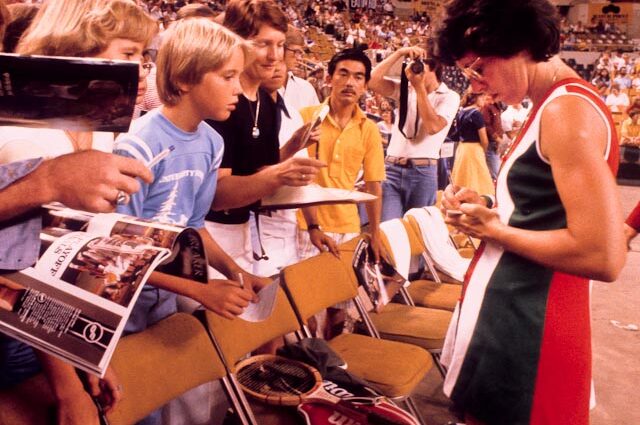Nargiz Mammadzada
The Unifying Force of Sports
Imagine a sea of fans, wearing their team’s colours, cheering in unison as a goal is scored or a touchdown is made. Fans of all backgrounds, races and religions come together to support their teams at sporting venues, fostering a sense of pride and belonging that unites entire communities.
People from all walks of life can be found huddled around televisions, rooting for their heroes, whether they are in the centre of a busy city or a sleepy town. Neighbours become friends, strangers become allies and they are all united by their love of the game. Sports give communities a place to put aside their differences and rejoice in shared victories, promoting peace and understanding.
A few weeks after the catastrophic earthquake in Türkiye and Syria in February, Beşiktaş hosted Antalyaspor in the 14th-week postponement match of the Super League. As the chronometers showed 4.17 — the exact time of the earthquake — Beşiktaş fans filled the Vodafone Park stands and threw toys they brought for the earthquake-affected children onto the field, joined in cheers and applause with Antalyaspor fans. The game continued where it left off after the toys thrown onto the field were collected by the officials. It is moments like this that show how football unites people.
The Triumph of the Human Spirit
The unbreakable human spirit is at the heart of every sporting event. Athletes’ journey from obscurity to the spotlight encourages people to chase their aspirations against all odds and serves as a reminder that success is possible even in the face of difficulty.
Serena Williams and Naomi Osaka
Naomi Osaka, a rising tennis star, has spoken about how she looked up to Serena Williams as a role model. Williams’ dominance on the tennis court and her resilience in the face of challenges motivated Osaka to pursue her tennis dreams. Now, Osaka is making her own mark in the tennis world.
Kylian Mbappe and Cristiano Ronaldo
Kylian Mbappe, the electrifying French football sensation, found inspiration in the remarkable journey of Cristiano Ronaldo. As an aspiring footballer, Mbappe looked up to Ronaldo, not only for his extraordinary skills on the pitch but also for his unparalleled work ethic and dedication to the sport.
Sports as a Catalyst for Social Change
Athletes have served as catalysts for important conversations, from Tommie Smith and John Carlos’ iconic black power salute during the 1968 Olympics to Colin Kaepernick’s decision to take a knee in protest of racial injustice in 2016. These potent actions have sparked debate and movements that go far beyond the sports world, challenging social mores and promoting advancement.
“Her activism extended beyond the court, making her a pioneer in the fight for gender equality in sports and society.”
Tennis legend Billie Jean King famously used her platform to advocate for gender equality in sports and beyond. In 1973, she faced Bobby Riggs in the famous ‘Battle of the Sexes’ tennis match, which became a symbolic event for the broader feminist movement of the 1970s. King’s victory not only shattered gender stereotypes but also sparked conversations about women’s rights and equal opportunities. Her activism extended beyond the court, making her a pioneer in the fight for gender equality in sports and society.
Promoting Health and Wellbeing
Sports are crucial in promoting both physical and mental well-being, turning exercise into a fun activity that unites people. The allure of sports encourages people to lead active lifestyles, combating the rising tide of sedentary habits that plague modern society.
NBA superstar LeBron James goes beyond the basketball court to promote health and well-being. Through his LeBron James Family Foundation, he established the I PROMISE School in his hometown of Akron, Ohio. The school focuses not only on academic achievement but also on the overall well-being of its students and their families, integrating fitness programs and nutrition education into the curriculum.
The Economic Impact of Sporting Events
Sports have an undeniable impact on people, but they also significantly impact local economies. Major sporting events bring in large crowds of fans from all over the world, boosting the hospitality, retail and transportation industries. Investments in and development of sports infrastructure can also lead to job opportunities and support for local businesses.
After hosting the Summer Olympics in 1992, Barcelona witnessed a remarkable economic transformation. The city invested in infrastructure development, including the construction of new stadiums and transportation improvements. This investment not only enhanced the Olympic experience but also contributed to long-term economic growth. It was attracting tourists and business opportunities that continue to shape the city’s prosperity.
While the estimated cost of hosting the Barcelona Olympics was around $11 billion (USD), including the construction of sports facilities, infrastructure development, and operational expenses, the Olympics created tens of thousands of jobs. An estimated 20,230 permanent and 41,450 temporary jobs were created between 1986 and 1993.
In 1990, before the Olympics, the number of international tourists visiting the city reached approximately 1.7 million, a substantial increase from previous years. Over the years, this number began to increase exponentially, reaching more than 20 million in 2019.
The Lasting Legacy of Athletes
Athletes represent the strength of willpower in a variety of ways, from touching gestures made in times of crisis to the triumph of the human spirit. The legacy of athletes lives on in stadiums, streets and hearts all over the world, creating a world where a shared love of sports transforms lives and communities.
READ NEXT:
-
10 MOST EXPENSIVE TRANSFERS IN FOOTBALL HISTORY
-
FORMULA 1: LAS VEGAS GRAND PRIX 2023 RECAP
-
FORMULA 1: SÃO PAULO GRAND PRIX 2023 RECAP
Featured image courtesy of Mitchell Weinstock via Flickr. No changes were made to this image. Image license found here.

